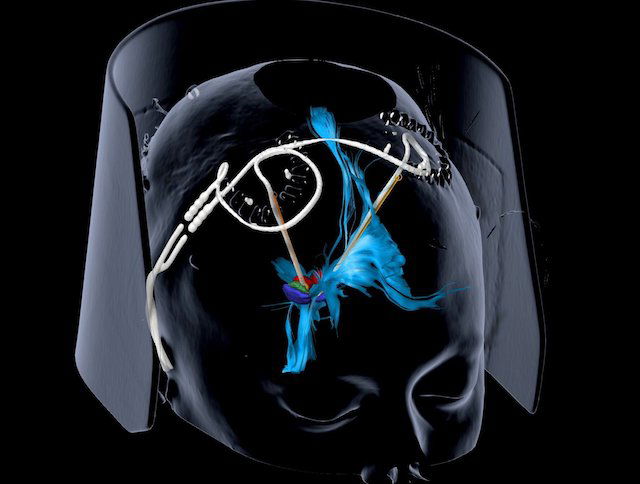
In a new study, researchers found deep brain stimulation may help fight against severe depression.
The finding may help develop better treatment for people who suffer from depression symptoms.
The research was conducted by researchers from the University of Freiburg and the University Hospital Bonn.
Deep brain stimulation is a neurosurgical procedure that put a medical device called a neurostimulator to specific brain areas for the treatment purpose.
The neurostimulator can send electrical impulses through implanted electrodes.
Previous studies had found that deep brain stimulation can help treat movement disorders, such as Parkinson’s disease.
However, it is unknown how this method can help treat depression.
About 10% to 30% of patients suffering from severe depression cannot benefit from drugs because the condition is treatment-resistant.
In the current study, the team used deep brain stimulation to stimulate a part of the reward system in the brains in 16 patients.
They performed deep brain stimulation in the patients’ medial forebrain bundle of the brain.
This brain region is involved in the perception of pleasure and reward and is important for motivation and the perceived quality of life.
The team found the method strongly decreased depression severity in all patients.
Most of the patients showed a reduction of symptoms within the first week, and the effects lasted throughout the course of the one-year study.
For half of the patients, the severity was even reduced below the level that requires treatment.
The findings suggest that the stimulation of the medial forebrain bundle is very promising and that depression patients can benefit in the long term from deep brain stimulation.
The team believes that deep brain stimulation is a real option for those patients suffering from severe, treatment-resistant depression.
It can be used when other forms of treatment like drugs and psychotherapy lose their effectiveness over the course of time.
Future work will try to replicate these significant effects.
The leader of the study is Prof. Thomas Schläpfer at the Medical Center – University of Freiburg.
The study is published in Nature journal Neuropsychopharmacology.
Copyright © 2019 Knowridge Science Report. All rights reserved.



